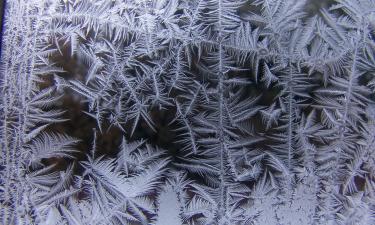Past and Future Meet in Argentina's Sunday Elections
The South American country enters into the last week of the campaign
In the first elections after 2001 upheavals, 19 candidates run for President, but only five of them stand chances to be in the runoff.
Argentina will choose on Sunday much more than its President for the next four years. As the country goes through its worst economic crisis ever and the widespread people's discredit on politicians, Argentineans have to find a way out of the critical situation they are living in, stuck between the ghosts of the past and an uncertain but promising future.
As in few moments in history, the population sees next elections as a new crossroad. A lot has been written about Argentina since the collapse of its financial system in December 2001 and the subsequent popular rebellion that swallowed four presidents in ten days. Indeed, today's scenario is much more different than worst predictions; however, a country in which more than half of its 37 million population lives in poverty and one third has not a formal job, still cannot say that the worst of the crisis has already passed by.
It is not the intention of this article to explore the reasons of the Argentine slump, but it is clear that many of them have to be tracked in its recent history. However, even after 2001 rupture, the whole nation still debates between proposal linked to nowadays failure and the remake of old policies disguised in new faces. This is the only explanation for the climbing to the top of the pre-election polls of ex-President Carlos Menem, who ruled Argentina from 1989 to 1999 and Ricardo Lopez Murphy, a former Minister of the overthrown Government of Fernando de la Rua (1999 - 2001).
Amid the reigning confusion, neo-liberal spokesmen disguise their speeches in a combination of neo-Keynesianism (Lopez Murphy) and political magic (Menem) to pull Argentina out of the social ruin.
"There are no key programmatic differences between candidates, because nobody believes in their word. Those who talk about nationalizing companies voted for the privatization", says Elisa Carrio, who stands on the other side of the street and runs for president from the center-left coalition, Alternative for a Republic of Equals.
The other two candidates with chances to be in the runoff, the Governors of Santa Cruz Province, Nestor Kirchner, and of San Luis Province, Adolfo Rodriguez Saa, opted for a centrist proposal. Both fiercely criticize the privatization process and the neo-liberal policies implemented by Menem in the nineties and call for industrial programs to promote the national production. For the sake of good order it is important to remark that, Kirchner and Rodriguez Saa, as well as Menem come from the Peronist party. Peronism, once hegemonic in Argentina, broke into pieces due to the confrontation between its main leaders: Eduardo Duhalde, current president and Carlos Menem, former head of state.
Opinion polls in the center of the scene
According to the last surveys, the above mentioned candidates are tied at the top of the preferences. There are slight differences between the first in the list that enjoys around 20% of the intentions, and the last one in the top five ranking with 15%. The problem is that nobody can assure who is at the top and who lies at the bottom. Half of the polls say that the official candidate, Nestor Kirchner, leads and the other half say that Menem will get the first position on April 27. Then, come the other three: Lopez Murphy, Rodriguez Saa and Elisa Carrio, range from 18% to 14% of the preferences, according to the fluctuating polls.
Despite the wave of corruption scandals that blighted his presidency, the questionable privatization of public companies, the increasing of the unemployment to unprecedented levels and the rose of the national debt from US$ 80 billion in 1991 to US$ 140 billion in 1999, few Argentines are betting against the 72-year-old Menem. Almost 50% of the Argentines believe Menem will win, but 60% say they would never vote him.
This is the picture of a country that still has to struggle hard against its self-created ghosts to stop looking for solutions in the past and build a stable future in democracy.
Subscribe to Pravda.Ru Telegram channel, Facebook, RSS!





